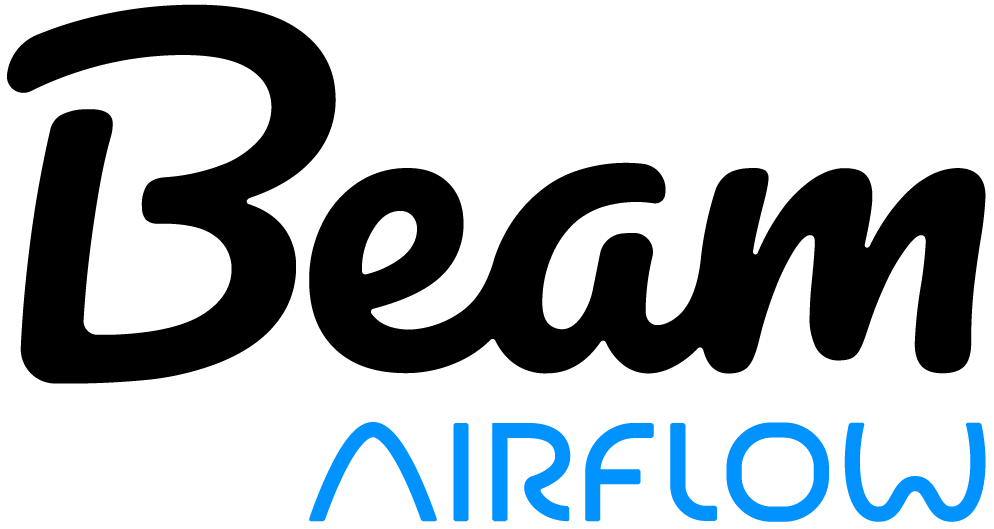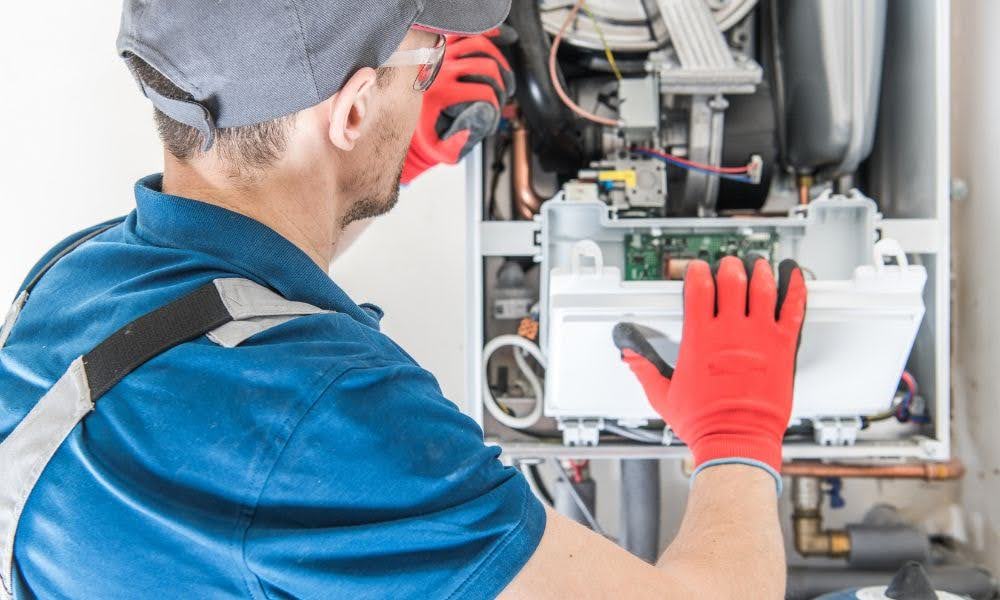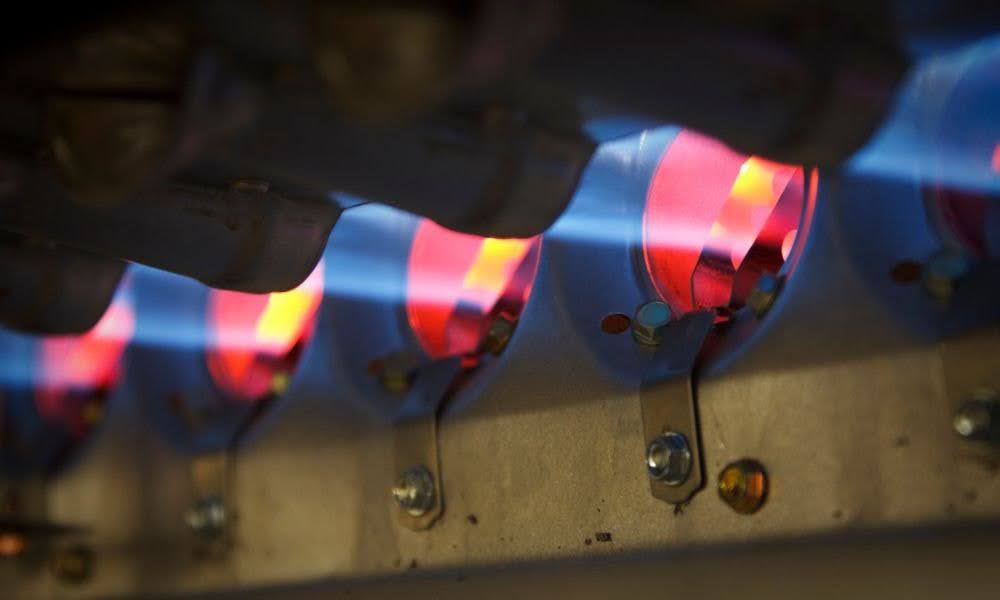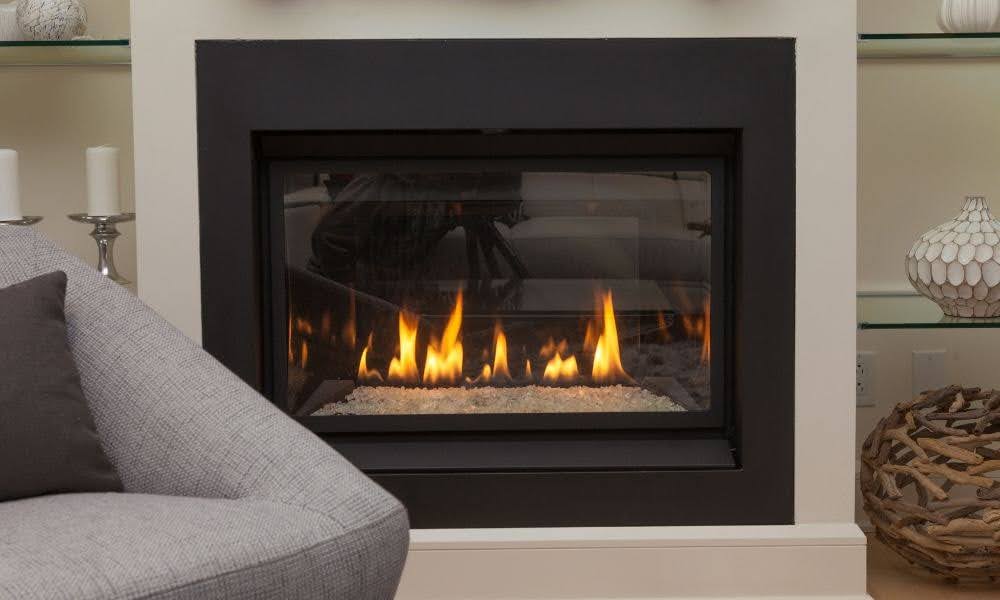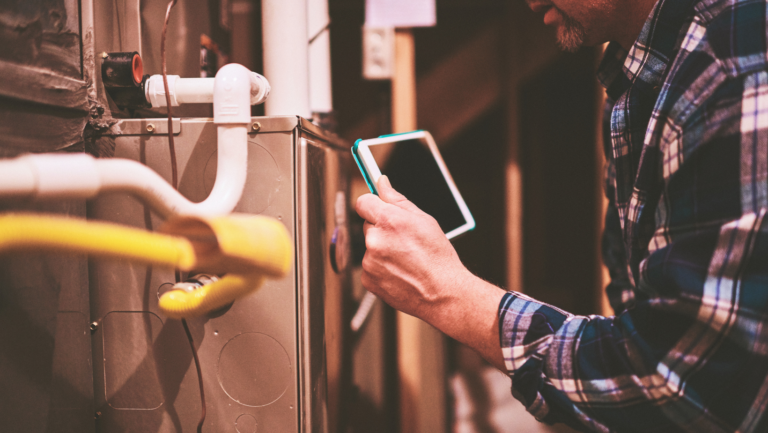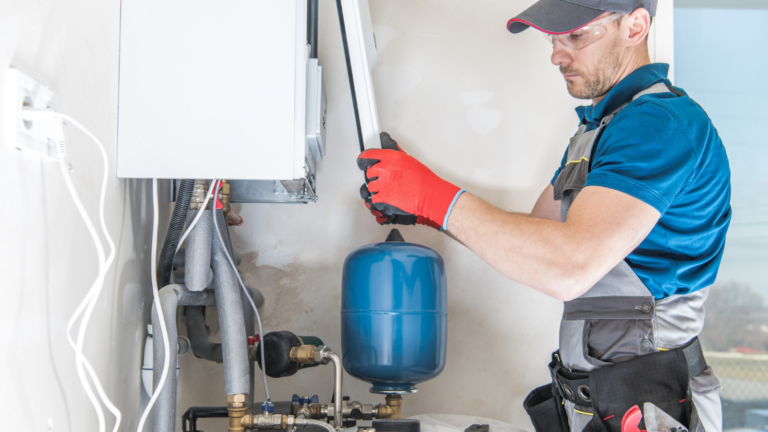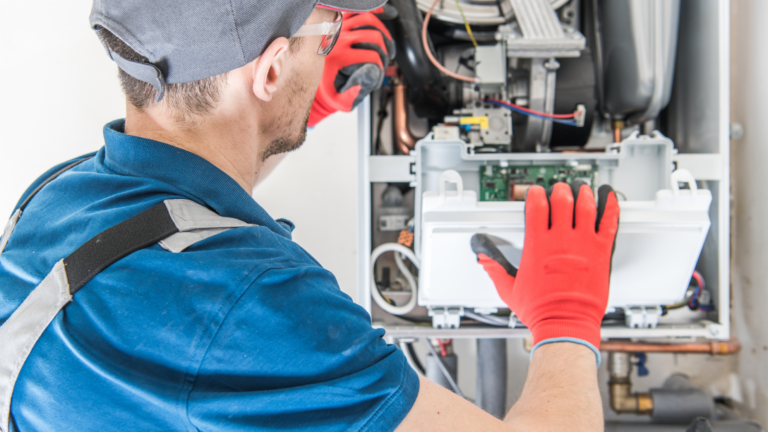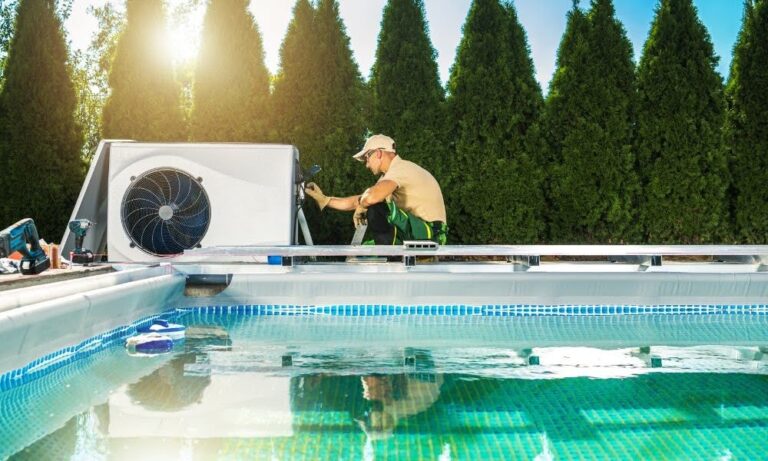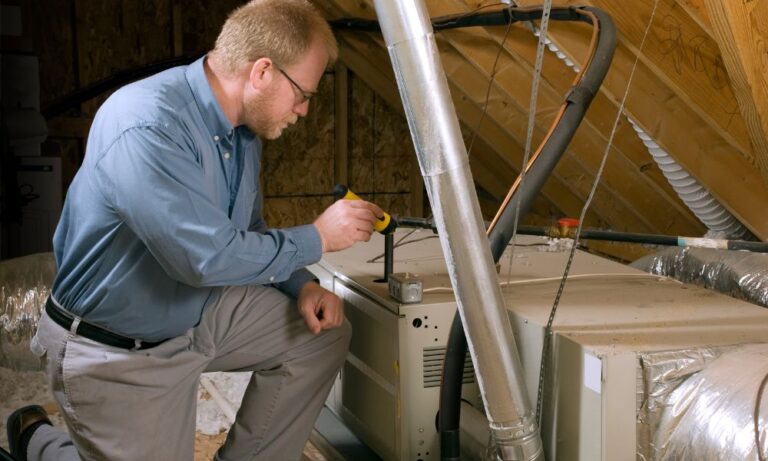How Much Does It Cost to Replace a Furnace?
Replacing a furnace can feel like a daunting expense, but understanding what goes into the cost can make the process much more manageable. Many homeowners often wonder, “How much should it cost to replace a furnace?” The answer depends on several factors, including the type of furnace, such as gas furnaces or heat pumps, and the complexity of the installation. Whether you’re considering a gas furnace or exploring other options, getting a sense of the overall cost will help you budget effectively and avoid surprises during furnace installation.
To make informed decisions about furnace replacement, it’s important to consider all costs, such as labor, permits, and old unit disposal. Understanding the factors that impact total expenses can help you decide whether upgrading to a high-efficiency model or switching to a different system is the best financial choice for your home.
Factors That Affect Furnace Replacement Costs
Understanding the factors influencing furnace replacement costs can help you prepare for the expenses.
Type of Furnace
- Gas Furnace: Popular for its efficiency and lower long-term energy costs, natural gas furnaces are an effective choice for colder climates.
- Electric Furnace: Electric furnaces are typically cheaper upfront but can lead to higher energy costs, especially in areas with cold winters.
- Oil Furnace: These tend to be less common today but are still an option in regions where oil is readily available. They generally have higher maintenance and fuel costs.
- Propane Furnace: Often used in rural areas, propane furnaces are an alternative to natural gas, though they can come with higher fuel costs.
Efficiency rating, known as AFUE (Annual Fuel Utilization Efficiency), and the complexity of the ductwork can also significantly influence costs. High-efficiency models may cost more initially but can save money on energy costs over time. Permits and local regulations can add to the installation cost, especially when specific compliance requirements must be met.
Breaking Down Furnace Replacement Costs
The furnace unit itself is a significant part of the overall replacement cost. The price varies depending on the type and efficiency of the furnace, with high-efficiency units costing more upfront but potentially saving on long-term energy expenses. Professional installation ensures the system is set up safely and works efficiently, but it is important to account for these fees when budgeting.
Some additional materials might be needed including:
- Thermostats: Upgrading to a programmable or smart thermostat can help you control heating more efficiently, which can be a worthwhile additional cost.
- Air Filters and Humidifiers: New air filters and optional humidifiers may be needed to complement the furnace and improve indoor air quality.
The total cost also includes removing the old furnace and disposing of it responsibly. This part of the job is necessary for proper installation and ensures compliance with local waste regulations.
Cost of Retrofitting Ductwork
If your existing ductwork isn’t compatible with the new furnace, retrofitting may be required. Depending on the extent of the modifications needed to ensure efficient airflow throughout your home, this can add to the replacement cost.
Contact Us For Furnace Installation Needs
Furnace Replacement Cost by Type of Furnace
Replacing a furnace can be a significant investment, and understanding the new furnace cost involved can help you make an informed decision. Several factors impact the final price, from the type of furnace to installation fees and additional equipment.
Cost of Replacing a Gas Furnace
Replacing a gas furnace typically costs between $3,000 and $6,000, depending on the brand, efficiency, and size. High-efficiency models may push the cost closer to $7,500, but they can lead to lower long-term energy bills.
Cost of Replacing an Electric Furnace
Electric furnace replacement costs range from $2,000 to $4,000. Electric furnaces are generally less expensive to purchase and install, but they can result in higher energy costs than other types, especially in colder climates.
Cost of Replacing an Oil Furnace
Replacing an oil furnace can cost between $4,000 and $7,500. These furnaces are less common but still used in some regions where natural gas furnaces are unavailable. The cost also depends on the efficiency rating and the complexity of the installation.
Cost of Replacing a Propane Furnace
The cost to replace a propane furnace usually falls between $3,500 and $7,000. Propane is often used in rural areas, and the price varies based on efficiency and the size needed to heat your home effectively.
Labor and Installation Costs
The labor costs of installing a new furnace depends on the type of unit. It can also vary based on factors such as the complexity of the installation, your home’s existing setup, and whether additional components like air conditioning need adjustments. Hiring an experienced HVAC contractor ensures proper installation, which is crucial for both safety and efficiency, though it may increase overall furnace costs.
While DIY furnace installation may seem like a way to save money, it can be risky and lead to expensive issues if done incorrectly. Hiring professional HVAC contractors adds to furnace costs but ensures the job is done correctly and safely, which is essential for the system’s performance and your home’s comfort.
How Furnace Efficiency Impacts Cost
The efficiency of a furnace plays a major role in determining both upfront costs and long-term savings. High-efficiency furnaces typically cost more than standard models, but they consume less energy, which can lead to substantial savings on energy bills over time.
In many cases, opting for a high-efficiency furnace may also qualify you for tax credits or rebates, helping to offset the higher initial expense. These incentives and lower ongoing energy costs make high-efficiency furnaces an attractive option for homeowners looking to reduce their long-term heating expenses.
Hidden and Additional Costs in Furnace Replacement
When replacing your furnace, it’s easy to focus solely on the cost of the new unit itself, but there are often hidden expenses that can catch homeowners off guard. For instance, ductwork modifications or repairs might be needed to ensure your new furnace works efficiently, especially if your existing furnace was a different type or size. Venting and chimney adjustments may also be required, which can add to the overall expense, particularly if your home isn’t already set up for the new system.
Additional costs can include adding zoning systems for better efficiency, which allows different areas of your home to be heated independently—something furnace installers may recommend for optimal comfort. Don’t forget about extended warranties and service contracts. They can save you money on future furnace repairs and give you peace of mind.
Cost Comparison: Furnace Replacement vs Repair
Deciding whether to replace or repair your furnace often comes down to the age of the unit and the frequency of issues. If your furnace is older and requires frequent or costly repairs, replacement may be the more cost-effective option. On the other hand, minor repairs on a newer unit are typically more affordable, making it worth fixing instead.
How to Save Money on Furnace Replacement
To save on furnace replacement, consider timing your purchase for off-season periods when demand and prices are typically lower. Look for manufacturer rebates to reduce costs, and don’t be afraid to negotiate with contractors for the best possible deal. Taking these steps can help make the process more affordable without compromising quality.
Furnace Replacement Timeline and Process
The process of replacing a furnace generally takes a day, from removing the old unit to installing the new one and testing it. The exact timeline depends on factors like the type of furnace and any required modifications to existing ductwork. During installation, expect a crew to remove your old furnace, set up the new unit, connect necessary components, and test the system to ensure it’s working efficiently and safely.
Common Furnace Brands and Their Price Range
Carrier Furnace Prices
Carrier furnaces are known for their reliability and energy efficiency. Depending on the model and efficiency rating, they cost from $3,000 to $7,500.
Lennox Furnace Prices
Lennox offers a range of high-efficiency models, typically between $3,500 and $8,000. Higher-end models provide advanced features and improved energy savings.
Trane Furnace Prices
Trane furnaces are built for durability and cost between $3,200 and $7,800. They are known for producing efficient units that help reduce long-term heating costs.
Goodman Furnace Prices
Goodman furnaces are often considered a budget-friendly option, ranging from $2,500 to $5,500. They provide solid performance at a more affordable price than premium brands.
Regional Cost Variations for Furnace Replacement
As mentioned, furnace replacement costs can vary significantly based on where you live. In general, prices tend to be higher in the Northeast and West Coast compared to the South or Midwest due to regional labor rates and climate demands. Urban areas often have higher installation costs than rural areas, primarily because of increased labor rates and permitting fees. In contrast, rural installations may involve additional transportation costs but tend to have lower labor charges overall.
Choosing the Right Furnace for Your Home
- Matching Furnace Size to Home Size: Choose a furnace that matches your home’s square footage to ensure efficient heating without wasting energy.
- Selecting the Right Efficiency Rating: For long-term energy savings, opt for a high-efficiency furnace (AFUE 90%+), especially if you live in a colder region.
- Best Furnace Types for Cold Climates: Gas furnaces and high-efficiency models are ideal for areas with harsh winters due to their powerful heating capacity.
- Best Furnace Types for Milder Climates: Electric furnaces or heat pumps are suitable for milder climates, as they are more cost-effective and provide adequate warmth.
Signs You Need to Replace Your Furnace
If your furnace is over 15-20 years old, it might be time to consider a replacement, especially if it requires frequent repairs or breaks down often. Rising energy bills can indicate that your furnace is no longer efficient, costing you more to heat your home. If you experience inconsistent heating, with some rooms being warmer or colder than others, it could be a sign that your furnace is struggling to maintain even heat and should be replaced.
Cost of Annual Furnace Maintenance
Routine furnace maintenance typically costs between $100 and $300 annually, covering inspections, cleaning, and minor repairs to keep your system running efficiently. Regular maintenance helps prevent costly breakdowns, extends the lifespan of your furnace, and ensures that it runs efficiently, ultimately saving money on energy bills over time.
Environmental Impact and Furnace Replacement
The type of furnace you choose can significantly impact your carbon footprint—natural gas and oil furnaces emit more greenhouse gases, while electric and heat pump systems can be cleaner, especially if powered by renewable energy. Upgrading to a high-efficiency furnace can also reduce energy consumption and lower emissions. For an environmentally friendly option, consider heat pumps or hybrid systems that offer greater efficiency and fewer emissions compared to traditional units.
Alternatives to Traditional Furnaces
If you’re looking for options beyond traditional furnaces, there are several efficient alternatives that can provide reliable heating for your home.
- Heat Pumps: These systems provide both heating and cooling and are highly efficient, making them a great alternative to traditional furnaces in moderate climates.
- Radiant Heating Systems: Radiant systems heat floors or walls directly, offering even and efficient warmth, though installation costs can be higher.
- Hybrid Heating Systems: Hybrid systems combine a heat pump with a traditional furnace, switching between them for optimal efficiency depending on the outdoor temperature.
Cost of Furnace Replacement for Commercial vs Residential
Residential furnace replacement typically costs between $3,000 and $7,000, depending on the type and efficiency. Commercial furnace replacements are generally more expensive, ranging from $7,000 to $20,000 or more, as they often require larger units and more complex installations to meet higher heating demands.
What You Need to Know Before Replacing Your Furnace
Replacing your furnace is a big decision, but understanding the costs and factors involved can make it much easier to navigate. Whether you’re considering a standard replacement or exploring alternatives like heat pumps, knowing what affects the overall cost—from the type of furnace to installation and maintenance—will help you make the best choice for your home.
Take the time to assess your needs, consider energy efficiency, and weigh long-term savings against upfront expenses. Consulting with a trusted professional can also provide valuable insights and help ensure you select the right furnace that meets your comfort and budget needs.
